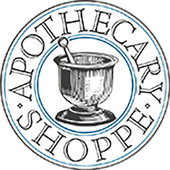
DIY Lip Balm: Herbs, Oils & Recipes for Nourished Lips
Reviewed by Dr. Judith Thompson, ACHS Dean of Herbal Medicine
Dry, cracked lips are a common concern year-round, whether you're braving winter winds or soaking up summer sun. But before reaching for conventional lip products filled with artificial fragrances and preservatives, why not try a natural balm?
Homemade lip balm is simple to make and allows you to personalize the ingredients using organic herbs and pure essential oils. Here are five nourishing lip balm recipes to get you started. They use simple, natural ingredients, and each one offers a unique benefit, from energizing peppermint (Mentha x piperita) to soothing calendula (Calendula officinalis).
Natural Lip Balm Recipes
![]()
Here are five nourishing lip balm recipes using simple, natural ingredients. Each one offers a unique benefit, from energizing peppermint to soothing calendula.
1. Eucalyptus Lip Balm
Best for: Invigorating and antimicrobial support.
Ingredients:
-
4 oz Sweet Almond Oil (Prunus amygdalus var. dulcis)
-
2 oz Anhydrous Lanolin
-
1 oz Beeswax (grated, adjust for texture)
-
20 drops Eucalyptus essential oil (Eucalyptus globulus)
Directions:
-
Gently melt lanolin and almond oil in a double boiler.
-
Add eucalyptus leaves and let infuse for 30–45 minutes over low heat.
-
Strain mixture using cheesecloth.
-
Reheat and stir in beeswax until melted.
-
Remove from heat, add essential oil, pour into tins or jars, and let cool.
2. Lavender Lip Balm
Best for: Supporting dry, irritated lips.
Ingredients:
-
2 oz Sweet Almond Oil (Prunus amygdalus var. dulcis)
-
¼ oz Beeswax (grated, adjust for texture)
-
10 drops Lavender essential oil (Lavandula angustifolia)
Directions:
-
Melt almond oil and beeswax in a double boiler.
-
Test consistency (see tip below), then remove from heat.
-
Stir in essential oils.
-
Pour into tins or jars and let cool.
3. Rose Water Lip Balm
Best for: Sensitive lips with a floral touch.
Ingredients:
-
2 oz Sweet Almond Oil (Prunus amygdalus var. dulcis)
-
½ oz Beeswax (grated, adjust for texture)
-
8 drops Rose essential oil (Rosa damascena)
Directions:
-
Melt beeswax and almond oil.
-
Cool to lukewarm, then beat in rose water until the mixture emulsifies.
-
Add essential oil, stir well, and pour into tins or jars and let cool.
4. Calendula Lip Balm
Best for: Supporting irritated and cracked lips.
Ingredients:
-
2 cups Sweet Almond Oil (Prunus amygdalus var. dulcis)
-
2 oz fresh Calendula flowers(Calendula officinalis)
-
12 tsp Anhydrous Lanolin
-
¼ cup Beeswax (grated, adjust for texture)
-
7 drops Lavender essential oil (Lavandula angustifolia)
-
7 drops Roman chamomile essential oil (Chamaemelum nobile)
Directions:
-
Heat oil and lanolin, then add calendula. Infuse for 1 hour over low heat.
-
Strain mixture with cheesecloth, squeezing out all oils.
-
Stir in beeswax until melted.
-
Add essential oils.
-
Pour into tins or jars and let cool.
5. Peppermint & Sweet Orange Lip Balm
The Apothecary Shoppe offers the ingredients for this invigorating and sweet balm in a pre-made kit for a ready-to-go DIY experience. The kit includes:
-
4 oz Natural Beeswax
-
2 oz Sweet Almond Oil (Prunus amygdalus var. dulcis)
-
2 oz Lanolin
-
5 ml Peppermint essential oil (Mentha x piperita)
-
5 ml Sweet Orange essential oil (Citrus sinensis)
-
2 round stainless tins + 8 lip gloss tins
Just melt, mix, pour, and enjoy! This makes for a great gift or beginner’s project.
Safety Tips for Lip Balm Making
![]()
When crafting your own lip balm, safety is essential, especially since it’s going directly onto your skin (and often into your mouth).
Use essential oils wisely:
-
Always dilute properly—5 to 10 drops per ounce of carrier oil is usually safe for lip products.
-
Be extra cautious with phototoxic oils (like non-bergapten-free bergamot or lime).
Choose clean equipment:
-
Use sterile, dry containers to prevent mold or bacterial growth.
-
Wash all tools before and after use.
Patch test your product:
-
Apply a small amount on your wrist before using it on your lips, especially if you have sensitive skin.
Label your creations:
-
Include ingredients and date of creation. Most homemade lip balms last 6–12 months when stored in a cool, dark place.
Final Tip: How to Check Consistency
![]()
Not sure if your balm is the right texture? Here’s a quick test:
-
Dip a spoon into your hot mixture.
-
Place it in the freezer for 5 minutes.
-
Test it on your lips. If it’s too hard, add oil. If it’s too soft, add more beeswax.
Treat Your Lips Naturally
![]()
Whether you’re creating a custom balm to combat chapped lips or gifting a fragrant floral balm to a friend, making your own natural lip balm is a rewarding and fun process! Explore herbs and oils that speak to your personal needs and enjoy soft, nourished lips all year long.
Learn more ways to incorporate essential oils in your daily life with AROMA 101 Introduction to Aromatherapy, offered by American College of Healthcare Sciences.
This content is for educational purposes only and is not intended to be medical advice. Always use herbs and essential oils with caution and keep out of reach of children. Use particular caution when pregnant or nursing. Always check contraindications and think safety first! The statements herein have not been evaluated by the FDA. Products are not intended to diagnose, treat, cure, or prevent disease.
